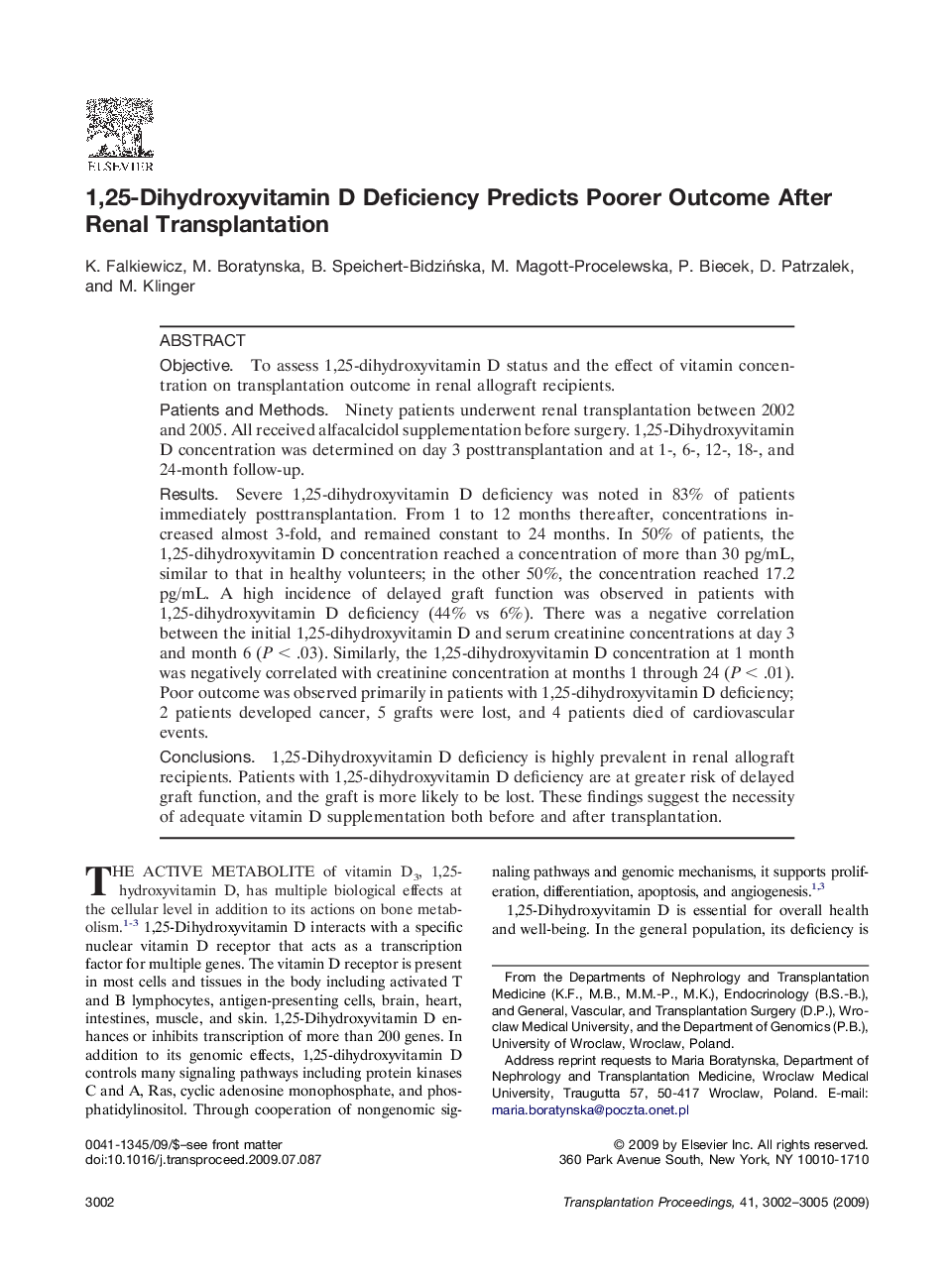| Article ID | Journal | Published Year | Pages | File Type |
|---|---|---|---|---|
| 4258973 | Transplantation Proceedings | 2009 | 4 Pages |
ObjectiveTo assess 1,25-dihydroxyvitamin D status and the effect of vitamin concentration on transplantation outcome in renal allograft recipients.Patients and MethodsNinety patients underwent renal transplantation between 2002 and 2005. All received alfacalcidol supplementation before surgery. 1,25-Dihydroxyvitamin D concentration was determined on day 3 posttransplantation and at 1-, 6-, 12-, 18-, and 24-month follow-up.ResultsSevere 1,25-dihydroxyvitamin D deficiency was noted in 83% of patients immediately posttransplantation. From 1 to 12 months thereafter, concentrations increased almost 3-fold, and remained constant to 24 months. In 50% of patients, the 1,25-dihydroxyvitamin D concentration reached a concentration of more than 30 pg/mL, similar to that in healthy volunteers; in the other 50%, the concentration reached 17.2 pg/mL. A high incidence of delayed graft function was observed in patients with 1,25-dihydroxyvitamin D deficiency (44% vs 6%). There was a negative correlation between the initial 1,25-dihydroxyvitamin D and serum creatinine concentrations at day 3 and month 6 (P < .03). Similarly, the 1,25-dihydroxyvitamin D concentration at 1 month was negatively correlated with creatinine concentration at months 1 through 24 (P < .01). Poor outcome was observed primarily in patients with 1,25-dihydroxyvitamin D deficiency; 2 patients developed cancer, 5 grafts were lost, and 4 patients died of cardiovascular events.Conclusions1,25-Dihydroxyvitamin D deficiency is highly prevalent in renal allograft recipients. Patients with 1,25-dihydroxyvitamin D deficiency are at greater risk of delayed graft function, and the graft is more likely to be lost. These findings suggest the necessity of adequate vitamin D supplementation both before and after transplantation.
